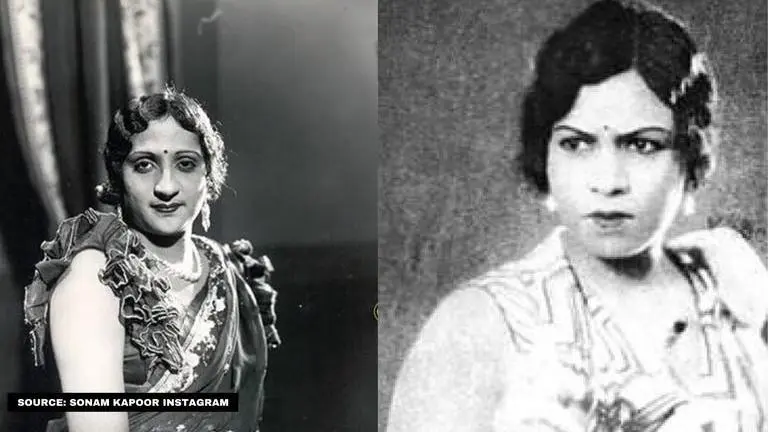Updated 10 July 2020 at 18:23 IST
Who is Fatma Begum? Know about first female director of Indian Cinema
Fatma Begum is one of the first female directors in Indian cinema and is considered to be an influential figure. Read on to know more details about her life.
- Entertainment News
- 4 min read

Sonam Kapoor recently took to social media to talk about Fatma Begum. She spoke at length about how Fatma Begum was responsible for making space for women in the film industry. Since then, the internet has been buzzing to know more about the inspirational figure. Read on:
Who is Fatma Begum?
Fatma Begum was born in 1892 and worked in the Indian film industry. She was an actor, director, and screenwriter. Fatma Begum is also considered to be the first female director and studio owner in the Indian film industry.
Advertisement
Fatma Begum’s family
Fatma Begum was born into an Urdu speaking Muslim family in India. There are several reports that she was married to Nawab Sidi Ibrahim Muhammad Yakut Khan III. However, there has been no proof or confirmation of the same. She is also the mother of actors Zubeida, Sultana, and Shehzadi. Her daughter, Zubeida carried her legacy forward and also acted in India’s first sound film, Alam Ara in 1931. Model-turned-actor Rhea Pillai is the great-granddaughter of Fatma Begum.
Advertisement
Fatma Begum’s career
Fatma Begum is known to have broken patriarchial norms in Indian cinema. She is often praised for her efforts with making progressive choices that paved the way for women into Indian cinema. Fatma Begum was a part of the industry at the time when even male actors would play female roles due to the dearth of female actors.
Fatma Begum debuted in the film industry with Ardeshir Irani directed Veer Abhimanyu. She played the female lead in the silent film which was released in 1922. She then went on to direct her film titled Bulbul-e-Paristan in 1926. The film is widely regarded as the first one made by a female director in the Indian film industry. She also produced the film under her banner, Fatma Films.
Since then there was no looking back for Fatma Begum. She donned the director’s hat once again for Goddess of Luck in 1929. She also played the female lead in Duniya Kya Hai?, which was released in 1938. Fatma Begum has also worked extensively in the Gujarati and Urdu theatre before stepping into cinema. She has even acted in several iconic films including Love, Heer Ranjha, Chandrawali, Shakuntala, Milan Dinar, and Kanaktara.
What Sonam Kapoor posted?
"For those of you who don’t know, in the beginning of my career, I AD'd with a director for almost 5 years. In a space that was largely dominated by men, I got a glimpse of what it means to be a woman in an otherwise man’s world. It is not easy. Later, when I went on to act in films, one such film that hit home was Neerja. I read her story, I read the script, I did my research - Neerja was a bad***. She was courageous, she was strong, she was also emotional and sensitive. Looking at these women and reading about them, I cannot help but look up to them. Another inspiration of mine has to be Fatma Begum! She was a leader in so many ways. Largely responsible for pulling the film industry out of its patriarchal ways, she was also unafraid to try news things and experiment." [sic]
"Right now, as Rhea and I lead AK Films, there are 1001 issues and roadblocks that we face, quite a few of them because we are women. Stories like Fatma’s gives me hope and encouragement. Rhea and I have never shied away from speaking up about the issues we faced while making Veere, but the fact is that that is just the tip of the iceberg. I just want to thank and show my respect to Fatma Begum, for paving the way for women to become actors, scriptwriters, producers and directors. Thank you for doing what you did back then, so that we can do what we are doing right now. No amount of words can describe the respect I have for you, thank you for being a feminist, thank you for not being afraid, thank you for taking risks, and thank you for establishing a platform for actors like myself to even exist today. Guys, if you don’t know about her, I urge you to look her up, read about her, be inspired. We NEED more women like her!" [sic]
Published By : Nissy Sara
Published On: 10 July 2020 at 18:23 IST
